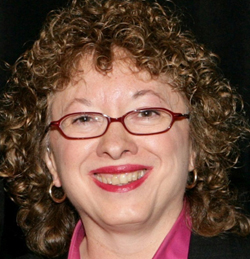Scott Dawson has followed an unusual trajectory, going from Baptist minister to president of a successful company that helps small businesses become ISO 9001 certified in less than six months at an affordable price.
That said, one could argue that a minister’s ability to teach, use metaphors and connect with people dovetails nicely with assisting customers in this grueling process.
In the 1980s, Dawson, a native of Denver, Colo., found himself directing the choir and teaching Sunday school one day and the next learning how to produce cables and wiring harnesses for a small manufacturing company in Silicon Valley owned by a church friend.
He worked his way up to quality manager and became involved in ISO 9001 — a global quality management systems standard — as the company began supplying HP and other large computer companies. Then, in 1998, the business was bought by the JPM Company in Lewisburg. Dawson became director of training there, moving with his wife Teresa to Lewisburg.
Unfortunately, JPM folded when the telecom industry imploded. Dawson couldn’t sell his home — the biggest employer in town had disappeared and everyone was putting a house on the market. That’s when Dawson and his brother Michael, who was still living in Denver, put their heads together and came up with Core Business Solutions Inc., a virtual company that has been growing ever since.
What inspired you to found Core Business Solutions?
After JPM closed, I found consulting work temporarily, but I thought I’d leave the area. That Christmas, my older brother Mike and I were at my mother’s house in Denver, sitting around Mom’s kitchen table, grumbling about life. I had just been laid off and he didn’t like his job. One of us, I forget who, said, “Wouldn’t it be cool if we did something together?” We had never had that conversation before.
He was an aerospace engineer with Lockheed Martin, and I was a former Baptist minister turned quality manager. So what could we do?
Mike had learned to be a software programmer at Lockheed. I said I had an idea. There’s this requirement that companies have to get ISO 9001 certified, and it’s continuing to expand, and there’s no good support in software for smaller companies to get certified.
Most of the companies at that time were mid-sized to large corporations. Certification was beyond the reach of smaller companies; it was too complicated and it cost $20,000 to $40,000 to go through the process.
I said if we could simplify the process for small companies to get certified, we could make a living at that. But we’d have to do it in an affordable way; it would have to be efficient enough to get the cost down.
I knew the requirement was going to expand, and it goes down the supply chain as companies try to minimize risk and control the quality of the products and services they rely on. So smaller companies were in the bullseye. We thought we could use technology to allow us to reach companies that needed certification and reconceive the way the certification process works.
Mike said, “How would the software work?”
I explained how I thought it would work and he sketched it on napkins. He turned the napkins around and said, “Is this what you’re talking about?” I said it was, and he said, “How about if I program that up for you?”
Two weeks later, he called me and said, “Could you get on your browser and look at this website?” and he walked me through it.
He developed the software for companies to use to get certified. I worked on developing the consulting programs — the training and documentation that companies would need. Over the years, we have developed the capability to help any company, in any industry, anywhere, and with any budget.
We have four programs that our customers can choose from. Two of them are online programs, and two of them are on-site. Our programs start at $2,500 and go up to $5,200 (for the online programs); then $7,000 to $10,000 for the on-site programs.
How did you get the company started?
We incorporated in 2000. We started by our own bootstraps. Mike was still working full-time at Lockheed and I was doing some consulting projects. We developed the website over a couple of years.
We approached Ben Franklin Technology Partners of Northeastern PA and they invested in the company, providing funding for three years to help us develop our technology and keep the doors open while we began marketing.
We market to a particular [demographic] — small business owners who have just found out that one of their biggest customers is requiring them to get the ISO certification. They have avoided ISO because of what they’ve heard about it, but now they’re forced to do it. So they do research on Google, type ‘ISO 9001’ or ‘ISO help for small companies,’ or anything related, and we pop up on the first page.
Teresa and I converted our basement into office space. In the beginning, it was just Mike and me; Teresa was our office manager and handled customer support (she still does this).
In 2004, Mike and I went to the American Society for Quality (ASQ) convention in Denver and we set up a booth. We got three customers that day, one from Chicago, one from Texas, and the third might have been from California. That showed us we could do it.
How has the company grown since then?
Now we have 10 full-time employees and seven subcontractors. We have consultants in Connecticut, New Jersey, Florida, Pennsylvania, Texas, California and Washington, D.C., who do on-site work with our customers. We’ll be adding more locations next year to get closer to our customers.
Last year, we helped 156 companies get certified. This year we’ll have more than 200. We’ve been growing 30 to 40 percent a year over the last several years. We don’t have a lot of expenses, other than people. We tend to be pretty frugal on everything else. All of our consultants work out of their homes. Working from home brings along with it certain perks for the employees who work in leisure, and maybe better than in normal working conditions at office. Internet facilities along with other technologies and services utilized to process and analyze the data associated with the work is important for a solely work from home team to thrive well. Situations such as this might demand a Wireless telecom expense management system, which could keep a track of all such expenditures, helping them claim reimbursement for the same. We are a small, but a happy team, which gets reflected in our work ethics.
Lest I forget, it might be worth mentioning that we have worked with schools, law offices, janitorial services, technology companies, manufacturers and even a credit counseling agency. As the ISO requirements continue to be modified, they’re applying them to more and more industries. We’re getting calls from areas we’ve never worked in before.
What has been the biggest challenge so far?
Right now, it’s how to handle the volume. The company is expanding very quickly. Bringing on new consultants and having them follow our process is a challenge because we have a unique approach. So we’ve had to develop recruiting and certification programs for consultants.
We get 50 to 70 sales inquiries every month; everything is on the upswing. We’re dealing with our capacity and the multiplying effects of all this.
We tend to hire not quite as fast as our revenue grows, because we’re always trying to reduce the amount of time we have to put into the programs. So we record a lot of video and we write a lot of instructions and make check lists, so the customer can do many things without our help.
What’s the big differentiator for your company?
There are other ways to get certified. I view the market like the Grand Canyon. On one side of the canyon are companies that take a do-it-yourself approach. Our auditors tell us that about half of the companies that get certified do it without consultants. They send someone in to training or buy a book or download documents from the Web. Their price point is a few hundred dollars, up to $1,000 at the most.
The other side of the canyon is where consultants live. The traditional consultant, which is more like our full-service program, will be a local or regional consultant who works on-site with the customer. That market is $10,000 to $15,000, on average.
We feel there should be an option between $1,000 and $10,000. That’s why we have this suite of options, to bridge that. The reason we can do that is that we have very strong technology, and have worked through the process of supporting a customer remotely.
Our lower-priced options are geared to reach out to the DIY crowd. It’s nice for them to have someone they can call and get assistance from. It’s like enrolling in a college course and getting help from the professor.
There’s no one else doing an online program.
We try to be the alternative to a consultant. We’re more of a service company. Unlike consultants who charge based on their time, we charge based on the project, with a fixed price quote. Our financial success is based on volume, so small companies can afford it.
What’s next for Core Business Solutions?
Every seven years, the ISO updates the standards. ISO 9001, from 2008, is the one people get certified to now. The next one will come out in November 2015, and it will be a major revision. We’re going to continue to help companies get certified for the first time, but we’ll reach out to the 1.3 million companies that are already certified and now need to convert to the new requirements.
So we’re developing similar online programs for helping companies transition from the 2008 to the 2015 standards. It’s a different market for us, because we’re not just marketing to the uninitiated.
I would guess that the 2015 standards could double our business.
Writer: Susan L. Peña

↑ Top


